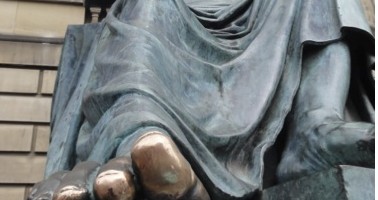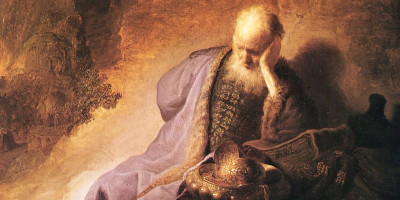Dear British friends,
Our hearts have gone out to you from the ‘mainland’, both for those for whom the referendum outcome was an unwelcome shock, as for those who voted ‘leave’, now disappointed by the empty promises made by ‘leave‘ campaigners. We have always enjoyed and admired your ability to produce enthralling detective television series and historical dramas. But the drama of the last ten days surely surpasses any reality show to date. With the promise of more episodes to come, we’re not sure if we are looking forward to them.
Some have called it a divorce. Yet one partner did not want it; the other only half-wanted it. Due to a strange form of democracy, the Scots and the Northern Irish are being forced out of the EU by the English and the Welsh against their will. It will be a long and messy process that can only cause further polarisation within the UK, and strained relationships with the EU countries.
Whatever the political outcome, we want to affirm that the story of the British people is intrically interwoven with that of ‘mainland’ Europe, like a complex Celtic design adorning the pages of the Book of Kells. Deep down, we belong together.
Today my wife Romkje and I begin a 12-day Celtic Heritage Tour–with 16 fellow travellers, beginning in Dublin before moving on to Northern Ireland, Scotland and England, to follow the transforming impact of the gospel through your islands from west to east, and north to south.
Starting with Patrick, we trace the stories of Columba, Aidan, Cuthbert, Chad and Augustine of Canterbury, among many others. Clan by clan and kingdom by kingdom, both islands embraced the story of Jesus–which originally had come across from the mainland sometime in the first century. Patrick’s sojourn in Gaul prepared him for his mission to the Irish. And Augustine was sent to Britain (against his will) from Rome.
Sequel
The sequel to the remarkable transformation of your islands was a new mission impulse back across the Channel to the continent spearheaded by Willibrord in the Low Countries, Boniface among the Germanic tribes, Columbanus and Gallus in Gaul, Switzerland and Italy, followed by waves of Irish and Scottish monks who established and serviced monastic communities across Germany, up until as late as the last century.
We owe much to each other historically. Our identities are interwoven. That is also true ethnically. Those living in the Celtic crescent from Cornwall, Wales, Scotland and Ireland have cousins scattered all over the continent from Galicia in Spain to Gaul, and further to Galicia in Romania (and Galatia in Turkey). The Angles and the Saxons came marauding from northern Germany. The Normans were recycled Vikings from Norway who had settled in Normandy, France, for a century or so before invading with William the Conqueror.
The British royal House of Windsor is of German origin, a branch of the House of Saxe-Coburg and Gotha. Those names were changed to Windsor, and Battenberg to Mountbatten, in 1917 due to anti-German sentiment during the Great War. Queen Victoria and Prince Albert conversed in German with one another and had to be asked to speak English when meeting with government leaders. In other words, deep down we belong to each other. Like it or not, we’re stuck with each other as family members.
Empathy
Many of you do like it, judging from your shocked response to the referendum outcome. Romkje and I have just spent three significant days in Munich at the Together for Europe Congress, climaxed by a four-hour public rally with 6000 present from all across Europe–including Britain. Countering the spirit of division and separation stirred by the referendum, personal and public affirmations of empathy for your country-folk were expressed on several occasions, as well as strong and clear statements about the kind of Europe we need: built on love, not fear; with bridges, not walls; hospitable and welcoming; embracing, not excluding; forgiving and reconciling.
Amidst dance and celebration, music and worship, testimonies and affirmations were shared from across the continent. A German and a Russian told of a remarkable march of reconciliation through Volgograd, former Stalingrad, between former enemies, stretching six and a half kilometres long! A Swiss reformed pastor from Zurich and a Mennonite representative shared about the reconciliation between their two traditions dating back to the drowning of the first Anabaptist, Felix Manz, at the hands of church leaders in 1525. Orthodox, Catholic and Protestant church leaders affirmed together on stage their desire for ‘ever closer union’ and cooperation. ‘Five hundred years is enough!’ was the cry concerning the separation of Catholics and Protestants since the Reformation. ‘Unity is possible!’ declared Maria Voce, leader of the Focolare Movement.
The futures of Britain and of Europe remain uncertain. We can choose to build them together in faith, hope and love!
Till next week,




Thank You Jeff for sharing your Heart. I can only say Amen to all you said. May those reconciling Words bear the fruit intended.
Bless You
Jeff, where did Wales go in that itinerary?! I worshipped last evening – and am sitting right now just a km from probably the longest continually used church in the British Isles in Llandanwg, near Harlech N Wales.. St Tanwg arrived with Cadfan from Brittany in 516, yes 1500 years this year – yet more reason to come here! Cadfan went on to establish the community on Bardsey Island, a place where 10000 saints were buried. Around here and down the Lleyn Peninsuar to Bardsey is full of Celtic foundations.
Too good to miss!